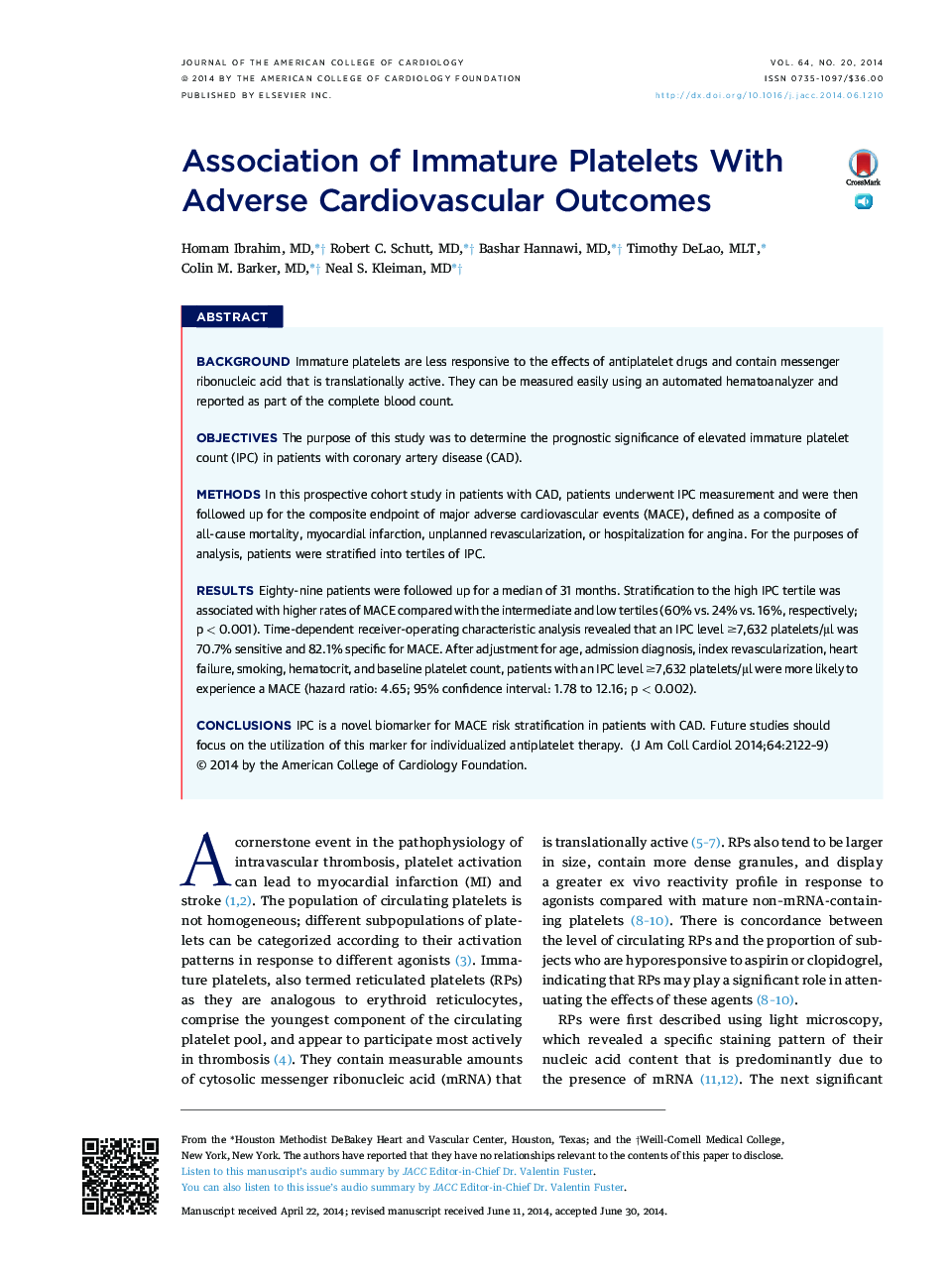| Article ID | Journal | Published Year | Pages | File Type |
|---|---|---|---|---|
| 2944690 | Journal of the American College of Cardiology | 2014 | 8 Pages |
BackgroundImmature platelets are less responsive to the effects of antiplatelet drugs and contain messenger ribonucleic acid that is translationally active. They can be measured easily using an automated hematoanalyzer and reported as part of the complete blood count.ObjectivesThe purpose of this study was to determine the prognostic significance of elevated immature platelet count (IPC) in patients with coronary artery disease (CAD).MethodsIn this prospective cohort study in patients with CAD, patients underwent IPC measurement and were then followed up for the composite endpoint of major adverse cardiovascular events (MACE), defined as a composite of all-cause mortality, myocardial infarction, unplanned revascularization, or hospitalization for angina. For the purposes of analysis, patients were stratified into tertiles of IPC.ResultsEighty-nine patients were followed up for a median of 31 months. Stratification to the high IPC tertile was associated with higher rates of MACE compared with the intermediate and low tertiles (60% vs. 24% vs. 16%, respectively; p < 0.001). Time-dependent receiver-operating characteristic analysis revealed that an IPC level ≥7,632 platelets/μl was 70.7% sensitive and 82.1% specific for MACE. After adjustment for age, admission diagnosis, index revascularization, heart failure, smoking, hematocrit, and baseline platelet count, patients with an IPC level ≥7,632 platelets/μl were more likely to experience a MACE (hazard ratio: 4.65; 95% confidence interval: 1.78 to 12.16; p < 0.002).ConclusionsIPC is a novel biomarker for MACE risk stratification in patients with CAD. Future studies should focus on the utilization of this marker for individualized antiplatelet therapy.
